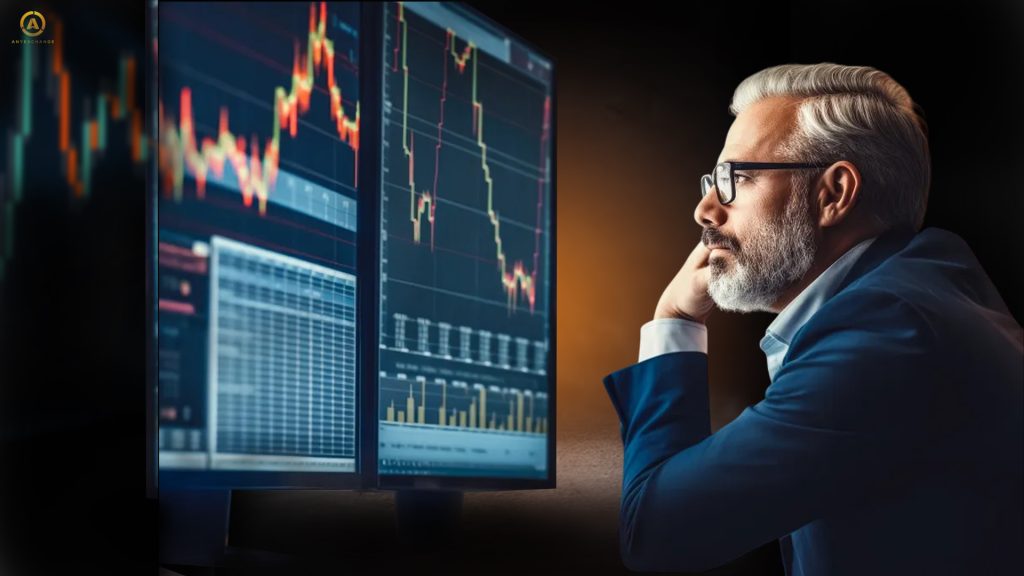
The main role of market makers on cryptocurrency exchanges is to maintain liquidity. In other words, they ensure the availability of assets in the necessary quantity at a given time for smooth trading operations.
How is this achieved? How do market makers on crypto exchanges work? What strategies do they use, how do they make money and why do exchanges need them?
Let’s try to understand.
Market making in cryptocurrency trading

How do Market Makers provide liquidity? Providing liquidity in trading occurs by balancing supply and demand for an asset in a given time period. The essence of market makers’ work boils down to two key roles: they act simultaneously as both a seller and a buyer, ready to execute an instant transaction. In doing so, they ensure the availability of the asset to other traders at certain prices. That is, in fact, the impact of market makers on the liquidity of cryptocurrencies is that by buying and selling assets, they ensure their constant active turnover on the exchange.
The main purpose and philosophy of market makers is embedded in the very name of their activity. That is, a market maker (MM) is a participant of trades who creates a market for others. Maintaining the liquidity of exchange instruments, he provides other market participants with an opportunity to make transactions at the most favorable conditions. His duties inсlude regulation of supply and demand, even at his own loss: he is obliged to buy when there is an oversupply of sellers and to sell when there is an increased demand. That is, when the price goes up, he sells, and when it goes down, he buys.
MMs perform an enormous amount of trading operations. They are the agents of the exchange without whom transactions are impossible. In cases where there are not enough counter bids and there is not enough liquidity to maintain the value of the asset, market makers use their own free cash to match supply and demand, balance prices and smooth out the high volatility of cryptocurrencies.
Their income is mainly derived from the spread (the difference between the bid/offer and ask/offer prices) minus the trading platform’s commission. In search of the optimal spread and appropriate pricing of cryptocurrencies, market makers typically operate in multiple markets, placing orders simultaneously on multiple exchanges. In this way, the positive influence of market makers on cryptocurrency spreads and pricing is realized.
As a rule, MMs do not rely on significant changes in the prices of digital assets, but use frequency trading tools and actively apply algorithmic trading tools. Trading bots and automated trading systems take some of the burden off them, allowing professionals to focus on risk management, market research and hedging trades.
How to become a market maker on a crypto exchange

Typically, market making functions are performed by investment funds, banks and other large financial organizations, sometimes by private individuals with impressive free capital to ensure the necessary trading volumes. MMs operate officially, transparently and in compliance with all legal regulations in the jurisdictions in which they operate. They are contractors either to centralized exchanges or to companies interested in improving the performance of individual assets. As for decentralized exchanges, the functions of market makers are usually performed by specialized software algorithms (AMMs, Automated Market Makers) that do not require human intervention.
Differences between cryptocurrency market making and traditional market making
In general, the strategies of market makers in the cryptocurrency market do not
are not very different from those used on traditional exchanges, except for a number of differences in technology, risk management and regulation:
- Market making techniques in the crypto industry require specific technical knowledge, skills and abilities.
- The cryptocurrency market has higher volatility and lower liquidity, so the activities of cryptocurrency MMs require more advanced approaches to risk management.
- The regulation of market makers on crypto exchanges has not yet been finalized, which requires this category of professional market participants to have certain moral qualities and ethics.
Risks and Benefits of Market Making for Cryptocurrency Exchanges

Market making as a service for cryptocurrency exchanges is widely demanded by both centralized and decentralized trading platforms. The use of market making tools provides them with benefits such as:
- Improve the overall efficiency of the trading platform. The continuous provision of quotes ensures high liquidity in order books, which is necessary for the smooth execution of trades. The high level of trading activity attracts new traders and investors, increasing the client base and trading volumes. The positive impact of market makers on trading volumes in turn increases the overall profitability of the cryptocurrency exchange.
- Ensure market stability. The continuous provision of prices makes it possible to maintain a relatively narrow spread between buying and selling prices, which in turn creates conditions for the stability of quotes, without obvious jumps or drops. This situation signals that the market is stable, not subject to manipulation, and inspires confidence in traders and investors.
- Reduced spread. A narrower spread reduces trading costs for participants, which contributes to participant interest and increases trading volume.
- Fast execution of trades. High liquidity creates the conditions for fast trades at optimal prices. This increases overall market efficiency.
- Support for illiquid assets. Market makers make low liquidity, high potential assets more visible to the market, increasing their attractiveness to investors.
- Risk management. MMs take responsibility for an appropriate risk/reward ratio by applying the most advanced risk management techniques. Given that market makers put their own capital at risk in the performance of their duties, exchange clients can rely on them to protect their interests.
- Providing analysis and forecasts. Market makers, as professional market participants, provide information about the market and its trends, on the basis of which investors and traders can make more objective trading decisions.
Despite the impressive list of benefits, market making carries certain risks for both the exchange and trading participants:
- Manipulation risks. This is the main risk, and there are many high-profile cases where market makers have been prosecuted for market manipulation. Such specialists accumulate huge amounts of data from incoming orders, based on which they open positions and move prices. And when self-interest or other impure interests override conscientious trading practices, a market maker may engage in criminal manipulation on his own behalf.
- Risk of loss. Retail investors depend on the liquidity provided by MMs. If too many assets accumulate on a market maker’s balance sheet, selling pressure will set in and assets will lose value.
- Ineffective regulation. Although MMs operate legally, there is little oversight due to gaps in the current laws governing cryptocurrency markets. This can lead to fraud risks or make it difficult to hold unscrupulous market makers accountable.
What is the income of market makers?
MM’s profit from working with a cryptocurrency exchange depends on how effectively he fulfills the tasks set for him by the exchange. First of all, from the ability to maintain liquidity.
Large exchanges encourage healthy competition, so they use the services of several MMs at the same time. In the conditions of transparent work, they jointly achieve optimal pricing, transaction costs and speed of order execution.
Market makers are the first to view active orders, receive information about the trends that have emerged and, based on the data obtained, take the necessary actions to prevent spikes and keep prices within predetermined boundaries. If it succeeds, the cryptocurrency exchange charges minimal commissions and the market maker receives a large profit.
It is this profit (spread minus exchange commission) that forms the base income of MM.
In addition, market makers, as well as other traders, often apply arbitrage trading strategies, using the information they receive about inefficient markets where they can make a quick profit.
Sometimes they may also provide specialized services, receiving a fixed fee for the amount of work done, the right to share in project profits, or other forms of incentives.
Many cryptocurrency exchanges incentivize MMs with discounts on trading commissions in exchange for providing liquidity for specific assets, allowing them to make large profits on spreads.
How market making is realized in practice
The basic aspects of the activities of specialists of this profile inсlude:
- Continuous supply of quotes. To ensure liquidity and a more stable trading environment, market makers constantly publish buy/sell orders (ask/bid) at different price levels.
- Spread management. The spread should not exceed acceptable limits that provide optimal profits for both traders and MM.
- Algorithmic trading. Processing huge arrays of transactions, market makers automate the process of placing orders with the help of advanced technical tools.
- Portfolio optimization. Market making requires sophisticated strategies to balance your own portfolio to avoid risk.
- Balancing large trades or extreme market movements. MMs offset the effects of such events by buying or selling assets to prevent sharp price fluctuations.
- Supporting young cryptocurrencies. MMs often participate in initial coin offerings in order to stimulate interest in new cryptocurrencies.
Conclusion
The role of market makers in crypto trading is huge. After all, it depends on them to provide the market with liquidity, price stability, trading volumes and customer confidence in crypto exchanges. Their work requires extensive specialized knowledge and the ability to instantly adapt to the changing market situation.
The future of market making in cryptocurrency markets will likely involve even greater automation of the processes that MMs manage, as well as regulatory changes. Transparent regulation will need to inсlude additional measures to protect investors’ rights, primarily to prevent manipulation by market makers.
Thank you for your attention to our article. Invest safely and profitably!
AnyExchange is a cryptocurrency exchanger, through which you can convert popular digital assets at the most favorable exchange rate. We cooperate with leading international payment systems and work with both electronic and cash money. With the help of our platform you can also make fast and anonymous money transfers around the world.





